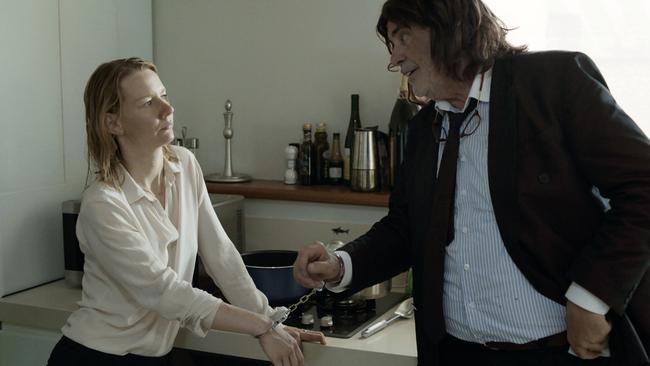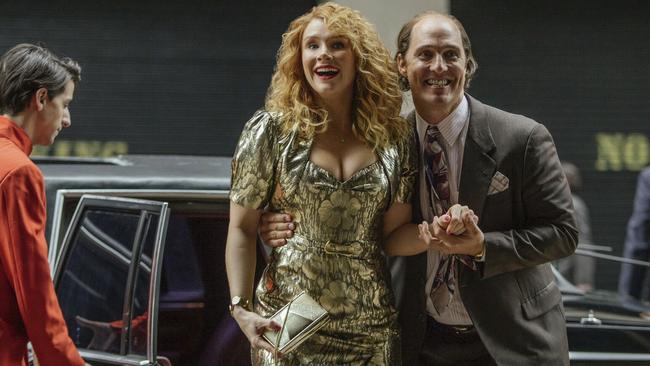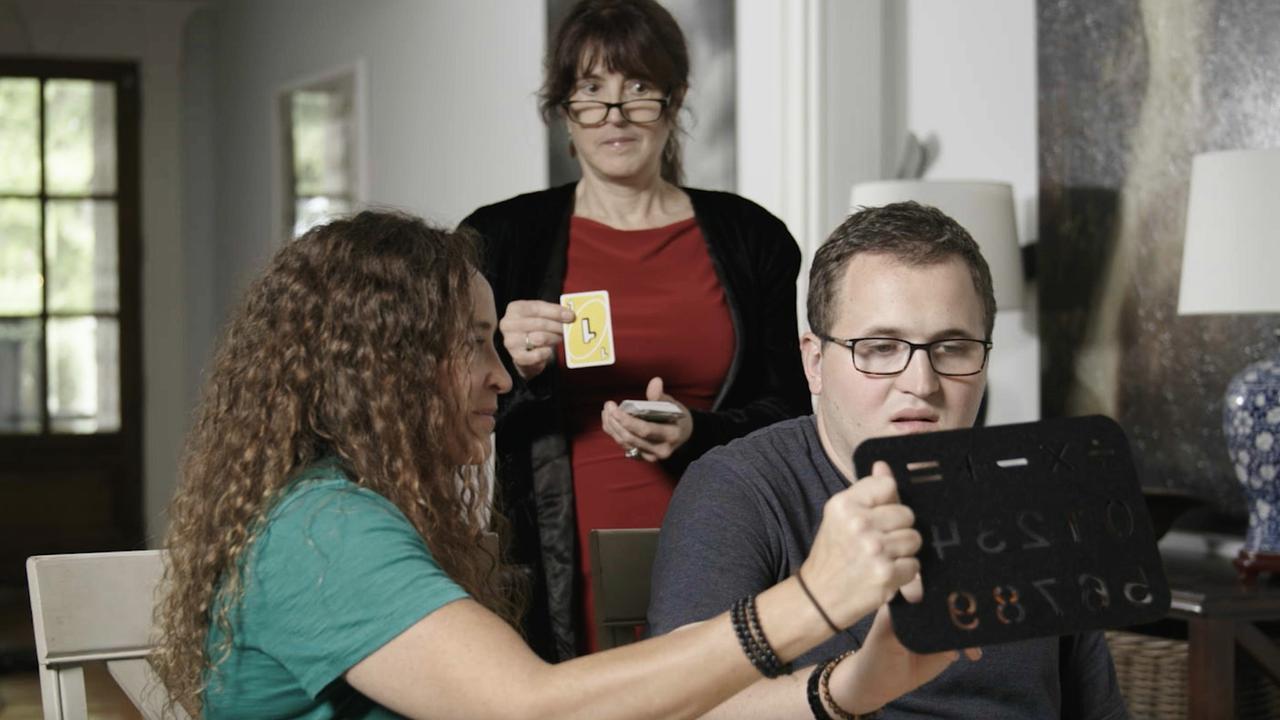Film reviews: Toni Erdmann; Gold with Matthew McConaughey
German film Toni Erdmann upends and re-invents some classic cinematic themes.

Just about every critical report from last year’s Cannes film festival lauded German entry Toni Erdmann, and many writers commented on the unusual fact that, at the press screening, there was spontaneous applause while the film was still unspooling. There was consternation, too, that the international jury failed to give the film any award, though it was chosen as best film by the FIPRESCI (International Federation of Film Critics) jury. And now, after a couple of local festival screenings, the film is opening in selected Australian cinemas and we can see what the fuss was all about.
The first thing to note is that Toni Erdmann is wholly original. It doesn’t follow any of the usual “rules” of narrative cinema. It’s been described as a comedy, and in a way it is — there are a few laugh-out-loud sequences — but there’s also an underlying air of melancholy. There are, as we know, no new plots, just variations on old ones, and Toni Erdmann does contain the essence of a familiar narrative, the one about the couple who were once close but who have now gone off in separate directions and the attempts of one of them to restore the status quo. I kept thinking of Cary Grant in numerous films — The Awful Truth, His Girl Friday, The Philadelphia Story — in which he played characters whose marriages had failed because of his own shortcomings, but who is now determined to prove to his ex-wife that he’s worth a second chance.
The difference in Toni Erdmann is that it’s not about a husband and wife but about a father and daughter, and that crucial difference transforms the familiar story entirely.
Neither father nor daughter is called Toni Erdmann. Winfried Conradi (Peter Simonischek) is the father, a semi-retired part-time piano teacher who lives alone, apart from his aged dog, and who delights in playing practical jokes, most of which aren’t funny. In the film’s opening sequence a hapless delivery man attempts to deliver a parcel, only to be confronted by Winfried — who asserts the package is for his brother, who was recently imprisoned for sending bombs in the mail. That’s the way Winfried is; he treats life as a joke, even if it isn’t. He’s constantly inserting false teeth or wearing a shaggy wig, both designed to make him look even weirder than he already does. He wears goth make-up to attend a school function where some of his music students are performing. No wonder he’s no longer married.
In contrast to her rather crazy father, his unmarried daughter, Ines (Sandra Huller), is a serious professional woman. She looks very efficient in her smart suits and, with her expression of rapt concentration, she reminded me at times of Julia Gillard. Even when she’s attending a rare family function she’s always slipping out to talk on her mobile phone, and as soon as she can get away she returns to her temporary base in Bucharest, Romania, where she’s involved in some kind of complicated business manoeuvring that will undoubtedly enrich the company she works for at the expense of the Romanians.

So we have another basic plot: the odd couple who appear to have nothing in common but deep down are closer than either one would admit. While Ines goes about being frighteningly efficient, networking at a US embassy function or reluctantly agreeing to escort the wife of the businessman she must impress on a shopping expedition (in Europe’s largest shopping mall, where few of the locals can afford to actually buy anything), or indulging in the occasional loveless tryst with her colleague Tim (Trystan Putter), her father, whose dog has died, decides to humanise her.
At least we assume that’s his decision, because despite the film’s length (at 162 minutes it’s certainly long, but never dull) writer-director Maren Ade, making her third feature, doesn’t spell out everything. At any rate, Winfried suddenly turns up in Bucharest posing as a character called Toni Erdmann, forcing his embarrassed daughter to introduce him to her colleagues and business associates.
In the process he attempts to understand her in ways he obviously never attempted before, even asking her the painfully direct question: “Are you really a human?”
What follows is never less than diverting, beautifully acted, painful, wacky and usually unexpected. Ines’s sudden performance of a Whitney Houston song is one of the highlights; another is her impromptu and deliciously embarrassing decision to host a corporate get-together in the nude, something her sweet Romanian assistant (Ingrid Bisu) obviously thinks is normal for these high-powered Germans. Ade is able to express volumes without any dialogue: a scene in which father and daughter wait for what seems like a minute for a lift to arrive is excruciating.
There’s a great deal of wisdom here, and a great deal of heart — although Ade stringently avoids any hint of sentimentality. She has succeeded, superbly, in up-ending and re-inventing classical themes, and the result is a sort-of comedy with resonances that are universal.
Matthew McConaughey revels in the role of Kenny Wells, prospector, in Gold, a film — very loosely — based on “true events” and set in the late 1980s. Kenny, a chain-smoker with a beer gut, thinning hair and a glass — or bottle — of booze invariably in his hand, is a huckster from Reno, Nevada, home of gamblers and, like his father before him, he’s in the mining business. But after the death of his dad, Kenny has a hard time making a dollar until he joins forces with geologist Michael Acosta (Edgar Ramirez), who is prospecting for gold in Indonesia.
The location of the search is pristine jungle of staggering beauty, but of course Kenny doesn’t gave a damn about the environment. He’s after money, as much of it as he can claw out of the earth, money to keep him and his long-suffering girlfriend, Kay (Bryce Dallas Howard). He survives a debilitating bout of malaria in time to celebrate a lucky strike — but that’s when the story really starts, because the money men on Wall Street are more ruthless and greedy than Kenny, while his attempts to bribe senior members of the Indonesian establishment are prone to backfire.
Kenny’s rise and fall is not a particularly inspiring yarn in and of itself, but McConaughey makes it compellingly watchable. His Kenny is a hideous character, but there’s something hypnotic about him. Nevertheless, director Stephen Gaghan, who made the excellent Middle East conflict drama Syriana (2005), gets a bit bogged down with the machinations of the double-crossing financiers, played by Bruce Greenwood and Corey Stoll, among others. Rachael Taylor has a couple of striking scenes as an old-fashioned vamp, and there’s a good performance from Toby Kebbell as an FBI investigator attempting to get to the bottom of some murky wheeling and dealing.
Toni Erdmann (M)
4.5
Limited release from Thursday
Gold (M)
3.5 stars
In limited national release



